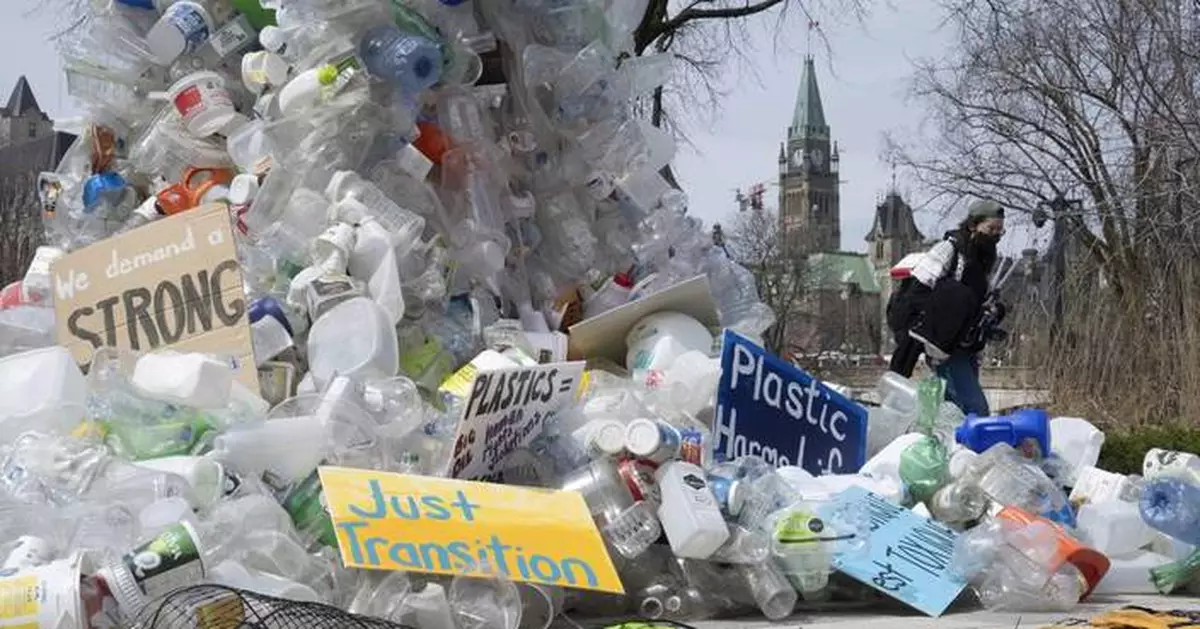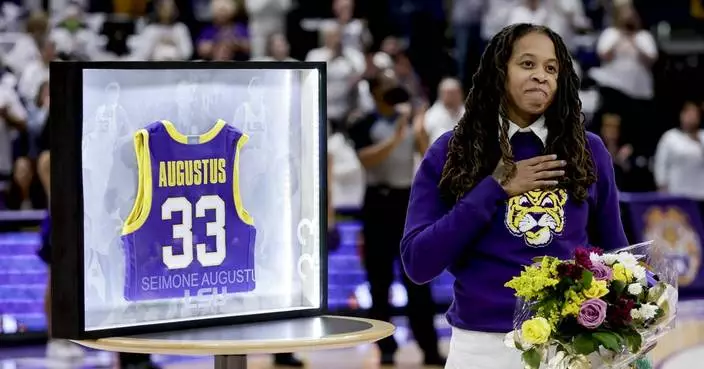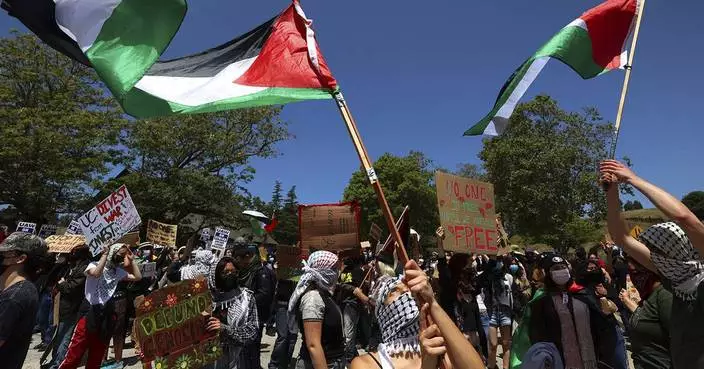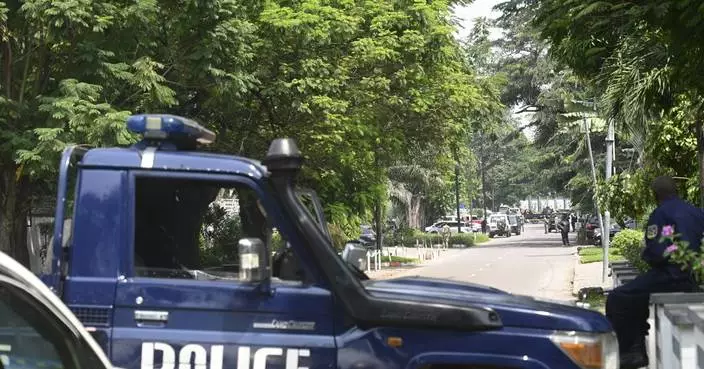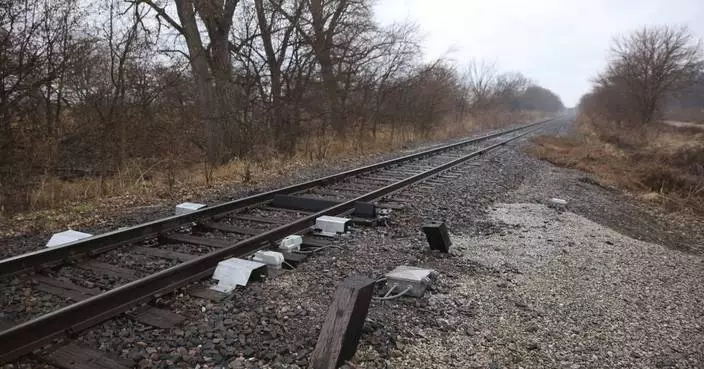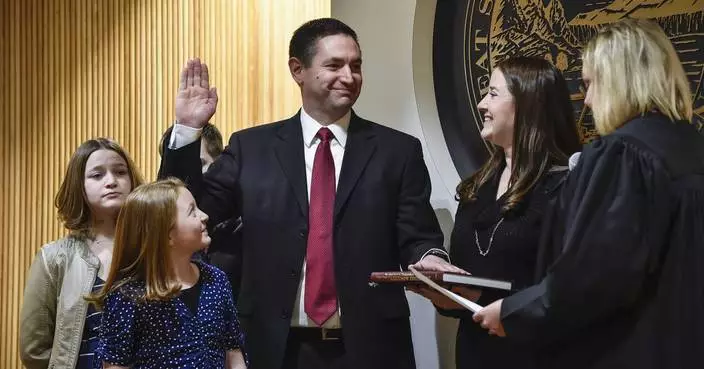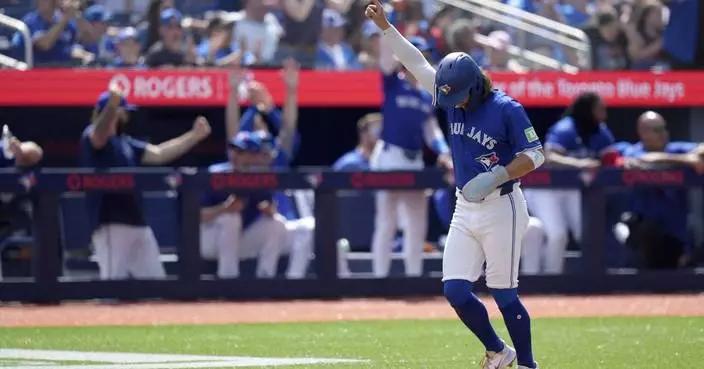OTTAWA, Ontario (AP) — Nations finished a round of negotiations early Tuesday on a treaty to end plastic pollution and made more progress than they have in three prior meetings.
Coming into Ottawa, many feared the effort would stall to craft the first legally binding treaty on plastics pollution, including in the oceans. The last meeting was marred by disagreements and there was much left to do.
But instead, there has been a “monumental change in the tone and in the energy," said Julie Dabrusin, a Canadian parliamentary secretary.
It was the fourth Intergovernmental Negotiating Committee on Plastic Pollution session. For the first time, the nations began negotiating over the text of what is supposed to become a global treaty. They agreed to keep working between now and the next and final committee meeting this fall in South Korea.
“We are working toward a world where we won’t have plastic litter everywhere in our ecosystems," Jyoti Mathur-Filipp, the executive secretary of the committee, said in an interview. “The energy is there, the will is there and I know we will get an instrument by the end of the year."
Here are some of the biggest takeaways from the meeting:
The talk shifted in Ottawa from sharing ideas to negotiating treaty language. Finally, said Santos Virgílio, Angola’s chief negotiator. Time was wasted in previous meetings, Virgílio said, but this time many arguments had been exhausted and it was time to find solutions.
“It’s big, because we have been going round and round during these sessions without showing direction,” he said in an interview. “But at least now, people are showing, OK, they have goodwill.”
Most contentious is the idea of limiting how much plastic is manufactured globally. Currently, that remains in the text over the strong objections of plastic-producing countries and companies and oil and gas exporters. Most plastic is made from fossil fuels and chemicals.
Graham Forbes, head of the Greenpeace delegation in Ottawa, said massively reducing plastic production is the most important thing the treaty can do because it's impossible to end plastic pollution otherwise.
Plastic production continues to ramp up globally and is projected to double or triple by 2050 if nothing changes. Plastic producers and chemical companies want a treaty that focuses on recycling plastic and reuse, sometimes referred to as “circularity.”
The negotiators agreed to keep working on the treaty in the coming months. Expert working groups will collect information and expertise to inform the negotiations at the final meeting in South Korea in the fall.
Without this preparation work between meetings, it would've been daunting to complete the negotiations this year.
The topics they’ll work on in between sessions are one indication of their priorities for the final round of talks. Plastic production won't be a focus for the working groups. Instead they will focus on how to finance the implementation of the treaty, assess the chemicals of concern in plastic products and look at how products are designed.
Environmental groups were frustrated that production cuts won't be part of the work between now and the fall meeting.
Waste pickers have been on the frontlines of trying to solve plastic pollution for decades, said John Chweya, a 33-year-old waste picker representing Kenyan waste pickers.
They collect, sort, recycle and sell plastics that would otherwise pile up or be burned. They're exposed to hazardous materials and can suffer from respiratory illnesses, skin infections and other diseases. They want a treaty that recognizes the role they play and helps waste pickers transition to safer jobs.
“We’ve given this problem that this treaty is trying to solve our lives," Chweya said.
In Malawi, Tiwonge Mzumara-Gawa sees plastic bags littering the lands where goats and cows graze and people burning waste behind their homes because there is no waste collection. She believes it'll take a global agreement for the national government to do more to address plastic pollution. Mzumara-Gawa is a campaigner for the Christian charity Tearfund.
Frankie Orona told negotiators their decisions affect peoples' lives and health. Indigenous land, water and air are being contaminated as fossil fuels are extracted and plastic is manufactured using hazardous chemicals, said Orona, executive director of the Texas-based Society of Native Nations.
“We're here to make sure our voices are being heard,” he said. “Our communities have been disproportionately impacted for decades, Indigenous and black and brown communities.”
They plan to finish negotiating in South Korea so the treaty can be adopted next year at a diplomatic conference. It’s an extremely short timeline for negotiations, meant to match the urgency of the problem.
Dabrusin, of Canada, said she's more hopeful than ever that an ambitious treaty to end plastic pollution will be adopted on schedule. Over the past week, she said she has heard from so many people that this is what they want — from businesses and environmental advocates to waste pickers and residents of communities littered with plastic.
“We're hearing many voices coming together,” she said. “That’s a beautiful moment when you can see that synergy, that it’s economic, it's environmental, it’s for health reasons. And there is that momentum right now.”
The Associated Press’ climate and environmental coverage receives financial support from multiple private foundations. AP is solely responsible for all content. Find AP’s standards for working with philanthropies, a list of supporters and funded coverage areas at AP.org.
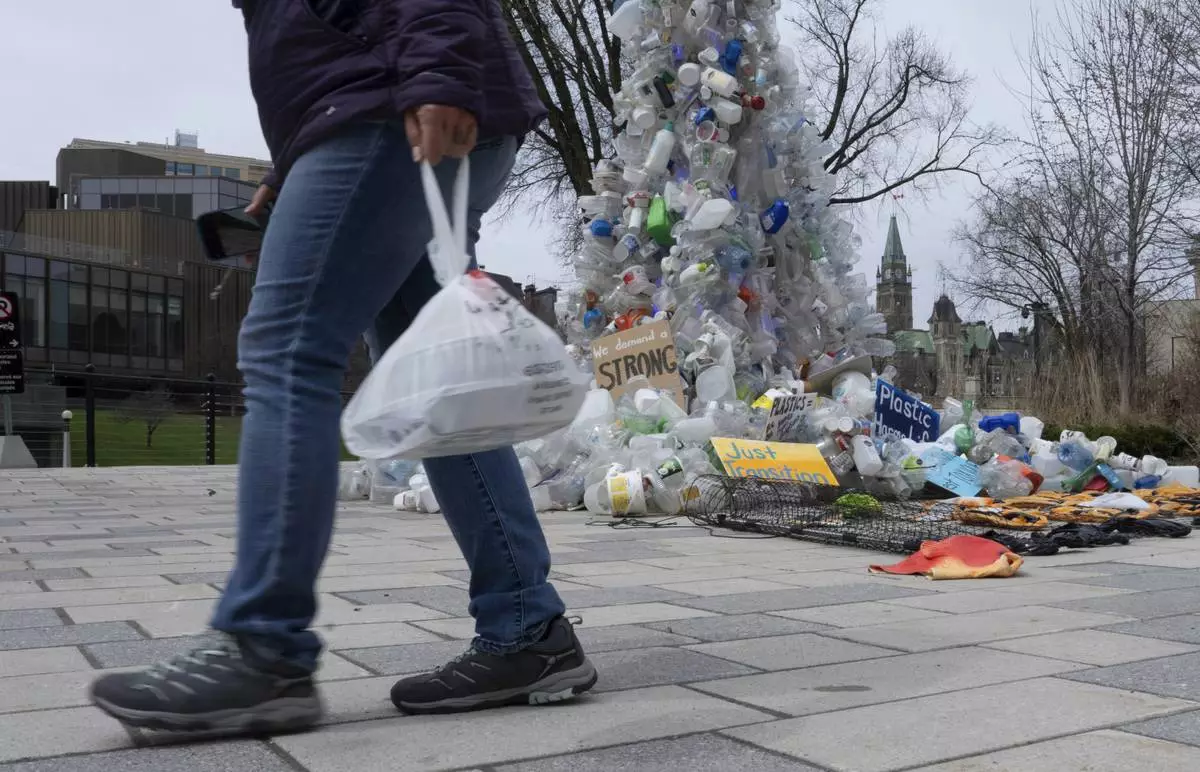
FILE - A person carries food in a plastic bag past an art installation outside the a United Nations conference on plastics on April 23, 2024, in Ottawa, Ontario. (Adrian Wyld/The Canadian Press via AP, File)
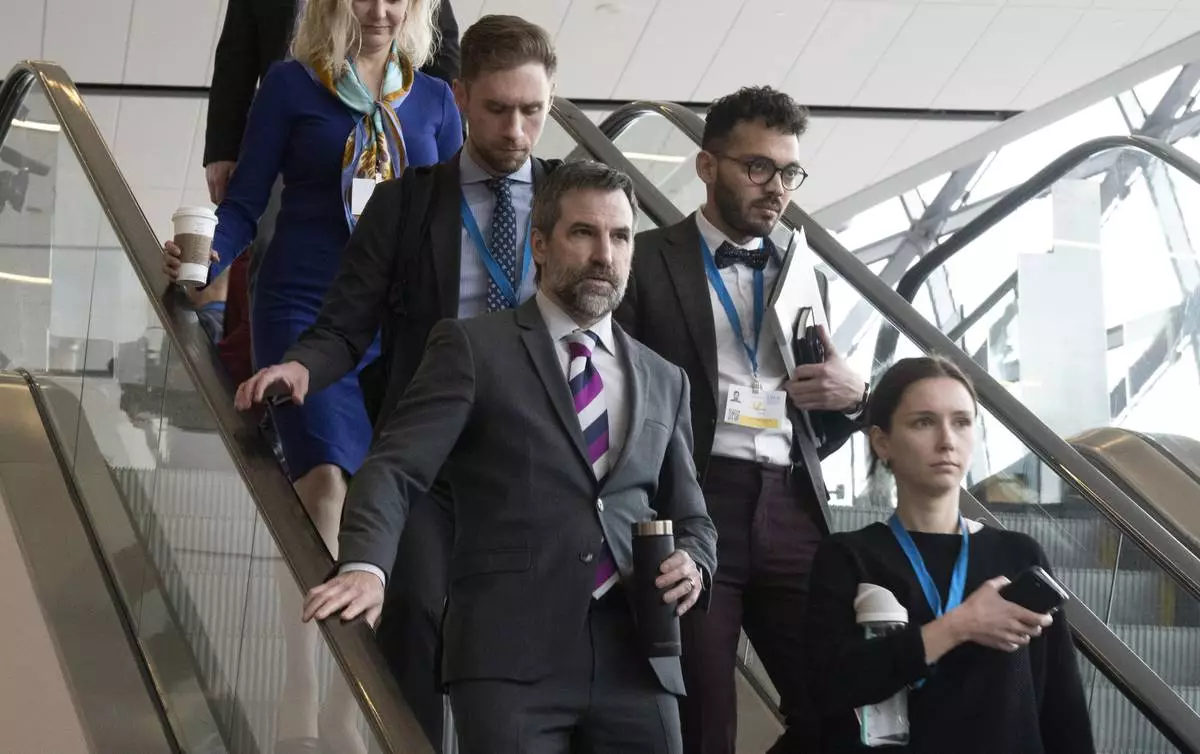
FILE - Minister of Environment and Climate Change Steven Guilbeault leaves a news conference at the Intergovernmental Negotiating Committee with staff, April 23, 2024, in Ottawa, Ontario. (Adrian Wyld/The Canadian Press via AP, File)
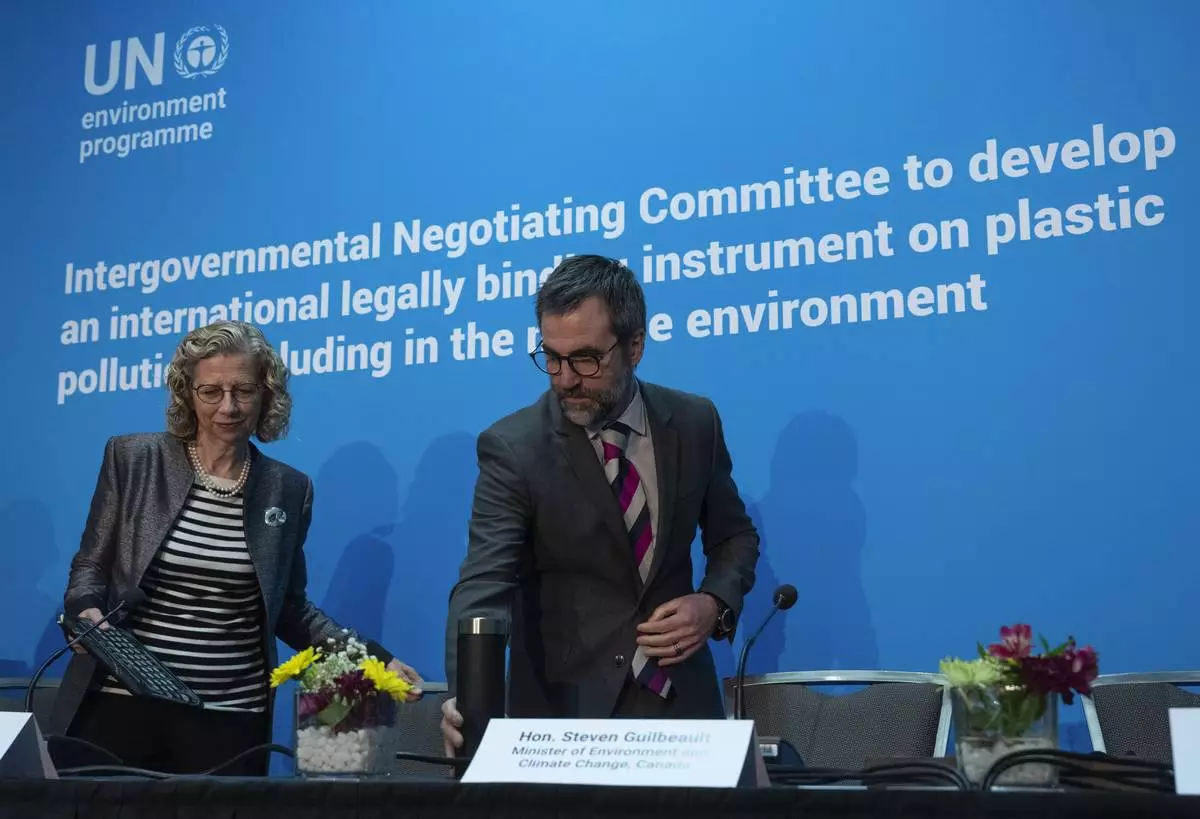
FILE - United Nations Environment Programme Executive Director Inger Andersen and Environment and Climate Change Minister Steven Guilbeault take their seats at a news conference April 23, 2024 in Ottawa, Ontario. (Adrian Wyld/The Canadian Press via AP, File)
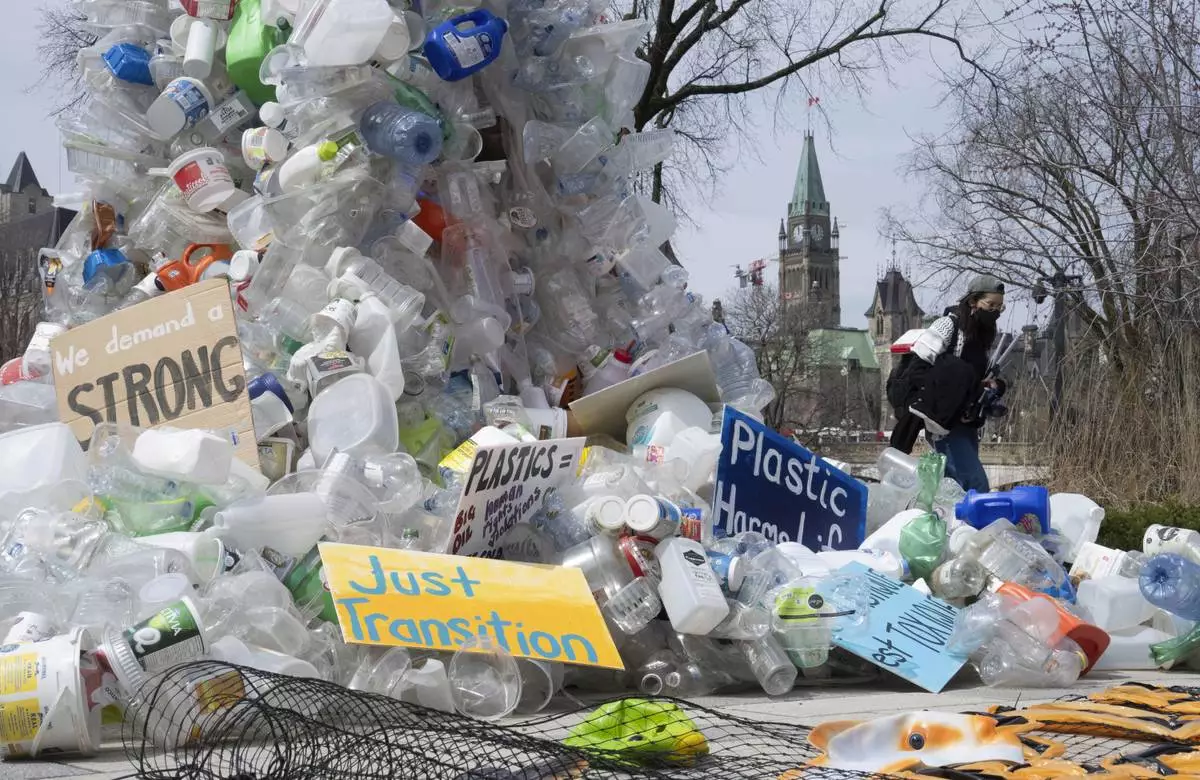
FILE - A person walks past an art installation outside a United Nations conference on plastics on April 23, 2024, in Ottawa, Ontario. (Adrian Wyld/The Canadian Press via AP, File)
JERUSALEM (AP) — The chief prosecutor of the world's top war crimes court sought arrest warrants Monday for leaders of Israel and Hamas, including Israeli Prime Minister Benjamin Netanyahu, over actions taken during their seven-month war.
While Netanyahu and his defense minister, Yoav Gallant, do not face imminent arrest, the announcement by the International Criminal Court's chief prosecutor was a symbolic blow that deepened Israel’s isolation over the war in Gaza.
The court's prosecutor, Karim Khan, accused Netanyahu, Gallant, and three Hamas leaders — Yehya Sinwar, Mohammed Deif and Ismail Haniyeh — of war crimes and crimes against humanity in the Gaza Strip and Israel.
Netanyahu and other Israeli leaders condemned the move as disgraceful and antisemitic. U.S. President Joe Biden also lambasted the prosecutor and supported Israel's right to defend itself against Hamas.
A panel of three judges will decide whether to issue the arrest warrants and allow a case to proceed. The judges typically take two months to make such decisions.
Israel is not a member of the court, so even if the arrest warrants are issued, Netanyahu and Gallant do not face any immediate risk of prosecution. But the threat of arrest could make it difficult for the Israeli leaders to travel abroad.
Netanyahu called the prosecutor’s accusations against him a “disgrace,” and an attack on the Israeli military and all of Israel. He vowed to press ahead with Israel’s war against Hamas.
Biden said the effort to arrest Netanyahu and Gallant over the war in Gaza was “outrageous,” adding “whatever this prosecutor might imply, there is no equivalence — none — between Israel and Hamas.”
Hamas also denounced the ICC prosecutor’s actions, saying the request to arrest its leaders “equates the victim with the executioner.”
Netanyahu has come under heavy pressure at home to end the war. Thousands of Israelis have joined weekly demonstrations calling on the government to reach a deal to bring home Israeli hostages in Hamas captivity, fearing that time is running out.
In recent days, the two other members of his war Cabinet, Gallant and Benny Gantz, have threatened to resign if Netanyahu does not spell out a clear postwar vision for Gaza.
But on Monday, Netanyahu received wall-to-wall support as politicians across the spectrum condemned the ICC prosecutor’s move. They included Israel's president, Isaac Herzog, and his two main political rivals, Gantz and opposition leader Yair Lapid.
It is unclear what effect Khan's move will have on Netanyahu's public standing. The possibility of an arrest warrant against Netanyahu could give him a boost as Israelis rally behind the flag. But his opponents could also blame him for bringing a diplomatic catastrophe on the country.
Yuval Shany, an expert on international law at Hebrew University and the Israel Democracy Institute, a Jerusalem think tank, said it was far more certain that Netanyahu's already troubled international standing could be further weakened.
“This is going to make Netanyahu an outcast, and his ability to move around the world will be seriously compromised,” said Shany. Even if the ICC does not issue the arrest warrant, other countries may now be more reluctant to provide support and assistance, he said.
Hamas is already considered an international terrorist group by the West. Both Sinwar and Deif are believed to be hiding in Gaza. But Haniyeh, the supreme leader of the Islamic militant group, is based in Qatar and frequently travels across the region. Qatar, like Israel, is not a member of the ICC.
The latest war between Israel and Hamas began on Oct. 7, when militants from Gaza crossed into Israel and killed some 1,200 people, mostly civilians, and took 250 others hostage.
Since then, Israel has waged a brutal campaign to dismantle Hamas in Gaza. More than 35,000 Palestinians have been killed in the fighting, at least half of them women and children, according to the latest estimates by Gaza health officials.
The war has triggered a humanitarian crisis in Gaza, displacing roughly 80% of the population and leaving hundreds of thousands of people on the brink of starvation, according to U.N. officials.
Speaking of the Israeli actions, Khan said “the effects of the use of starvation as a method of warfare, together with other attacks and collective punishment against the civilian population of Gaza are acute, visible and widely known.”
The United Nations and other aid agencies have repeatedly accused Israel of hindering aid deliveries throughout the war. Israel denies this, saying there are no restrictions on aid entering Gaza and accusing the U.N. of failing to distribute aid.
Of the Hamas actions on Oct. 7, Khan, who visited the region in December, said that he saw for himself “the devastating scenes of these attacks and the profound impact of the unconscionable crimes.”
In their rampage, Hamas militants gunned down scores of revelers at a dance party and killed entire families as they huddled in their homes. "These acts demand accountability,” Khan said.
International human rights lawyer Amal Clooney served on a five-member expert panel that advised Khan. She said the panel had agreed unanimously that there are “reasonable grounds” to believe that both the Hamas and Israeli leaders had committed war crimes, according to a statement.
South Africa, which has been leading a genocide case against Israel at the U.N. world court, welcomed Khan’s announcement seeking the arrest of Israeli and Hamas leaders. “The law must be applied equally to all in order to uphold the international rule of law,” the office of President Cyril Ramaphosa said.
The ICC was established in 2002 as the permanent court of last resort to prosecute individuals responsible for the world’s most heinous atrocities — war crimes, crimes against humanity, genocide and the crime of aggression.
The U.N. General Assembly endorsed the ICC, but the court is independent.
Dozens of countries don’t accept the court’s jurisdiction over war crimes, genocide and other crimes. They include Israel, the United States, Russia and China.
The ICC accepted “The State of Palestine” as a member in 2015, a year after the Palestinians accepted the court’s jurisdiction.
In 2020, then U.S. President Donald Trump authorized economic and travel sanctions on the ICC prosecutor and another senior prosecutor. The ICC staff were looking into U.S. and allies’ troops for possible war crimes in Afghanistan. Biden lifted the sanctions in 2021.
Last year, the court issued a warrant for Russian President Vladimir Putin on charges of responsibility for the abductions of children from Ukraine. Russia responded by issuing its own arrest warrants for Khan and ICC judges.
Molly Quell in Delft, Netherlands, and Mike Corder in Ede, Netherlands, contributed to this report.
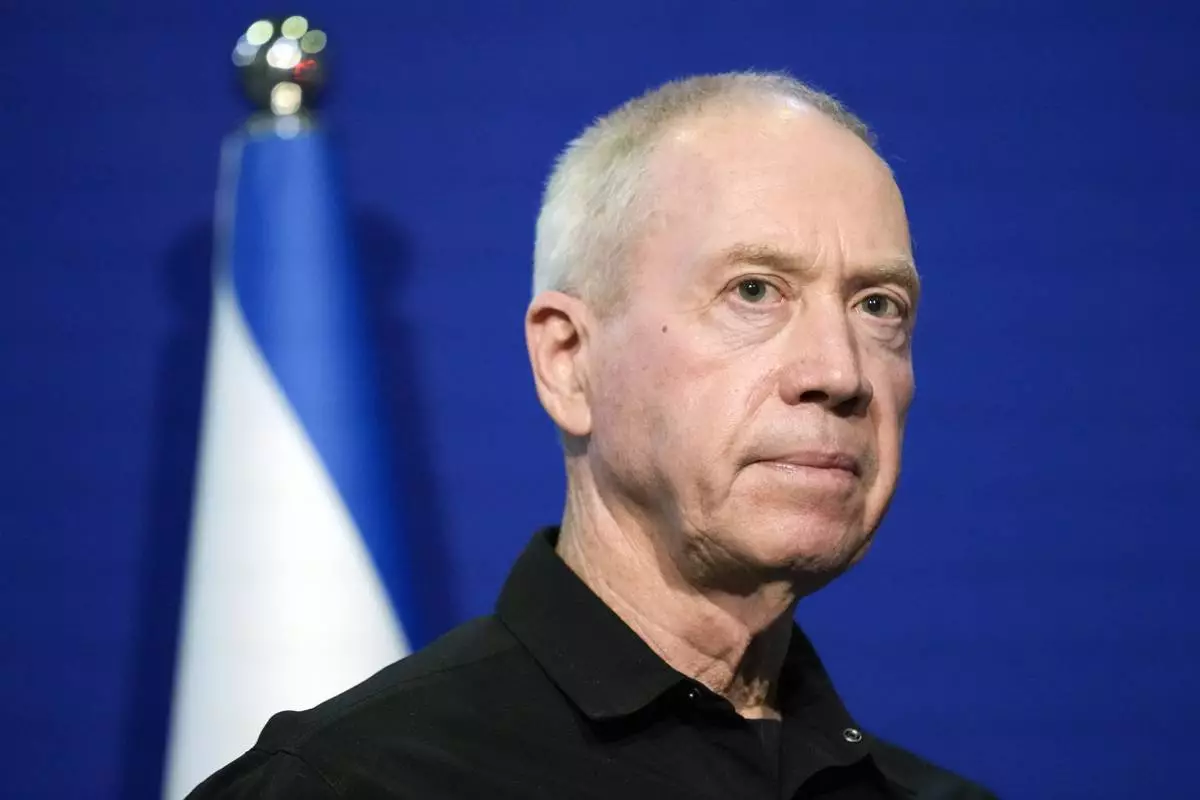
Israeli Defense Minister Yoav Gallant pauses while making a brief statement to the media with U.S. Secretary of State Antony Blinken, not pictured, at The Kirya, Israel's Ministry of Defense, Monday, Oct. 16, 2023, in Tel Aviv. The chief prosecutor of the International Criminal Court said Monday, May 20, 2024, he is seeking arrest warrants for Israeli and Hamas leaders, including Israeli Prime Minister Benjamin Netanyahu, in connection with their actions during the seven-month war between Israel and Hamas. Netanyahu, his defense minister Gallant, and three Hamas leaders, are believed to be responsible for war crimes and crimes against humanity in the Gaza Strip and Israel. (AP Photo/Jacquelyn Martin, Pool, File)

Hamas chief Ismail Haniyeh speaks during a press briefing after his meeting with Iranian Foreign Minister Hossein Amirabdollahian in Tehran, Iran, Tuesday, March 26, 2024. The chief prosecutor of the International Criminal Court said Monday he is seeking arrest warrants for Israeli and Hamas leaders, including Israeli Prime Minister Benjamin Netanyahu, in connection with their actions during the seven-month war between Israel and Hamas. Haniyeh is one of the three Hamas leaders believed to be responsible for war crimes and crimes against humanity in the Gaza Strip and Israel. (AP Photo/Vahid Salemi, File)
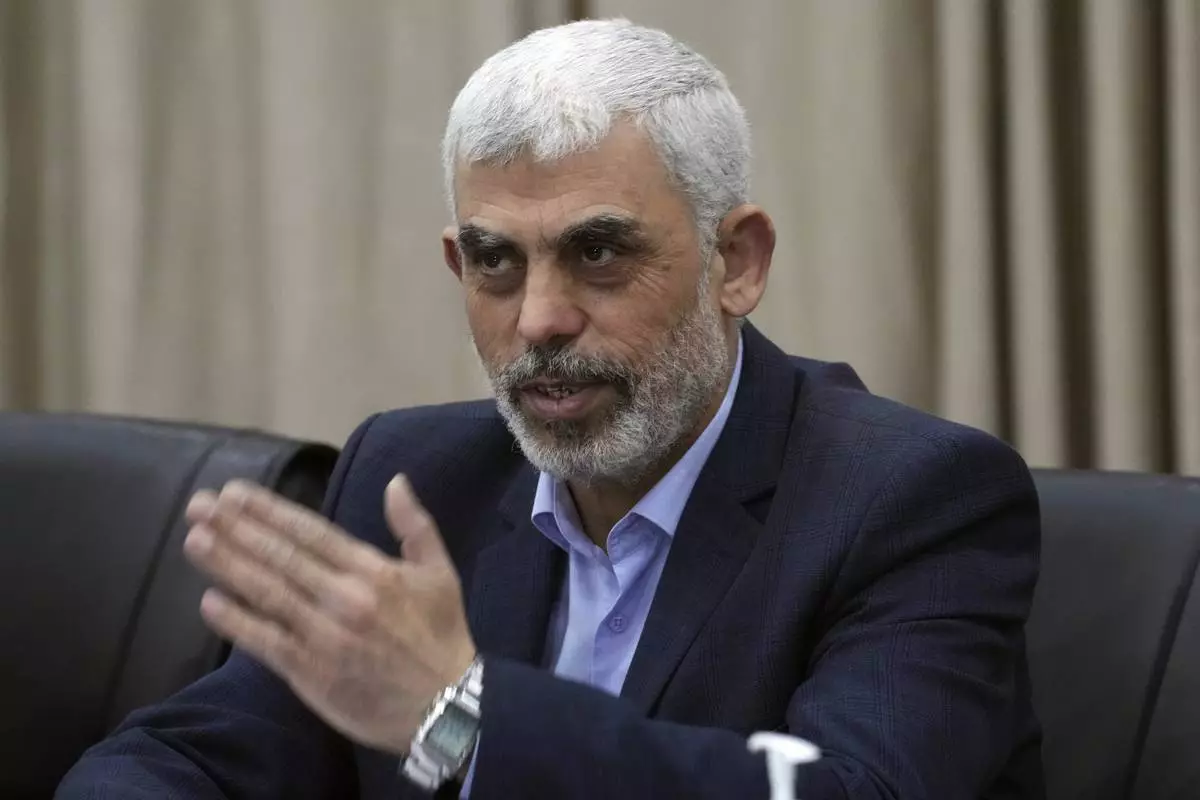
Yehia Sinwar, head of Hamas in Gaza, greets his supporters during a meeting with leaders of Palestinian factions at his office in Gaza City, Wednesday, April 13, 2022. The chief prosecutor of the International Criminal Court said Monday he is seeking arrest warrants for Israeli and Hamas leaders, including Israeli Prime Minister Benjamin Netanyahu, in connection with their actions during the seven-month war between Israel and Hamas. Yehia Sinwar is one of the three Hamas leaders believed to be responsible for war crimes and crimes against humanity in the Gaza Strip and Israel. (AP Photo/Adel Hana)
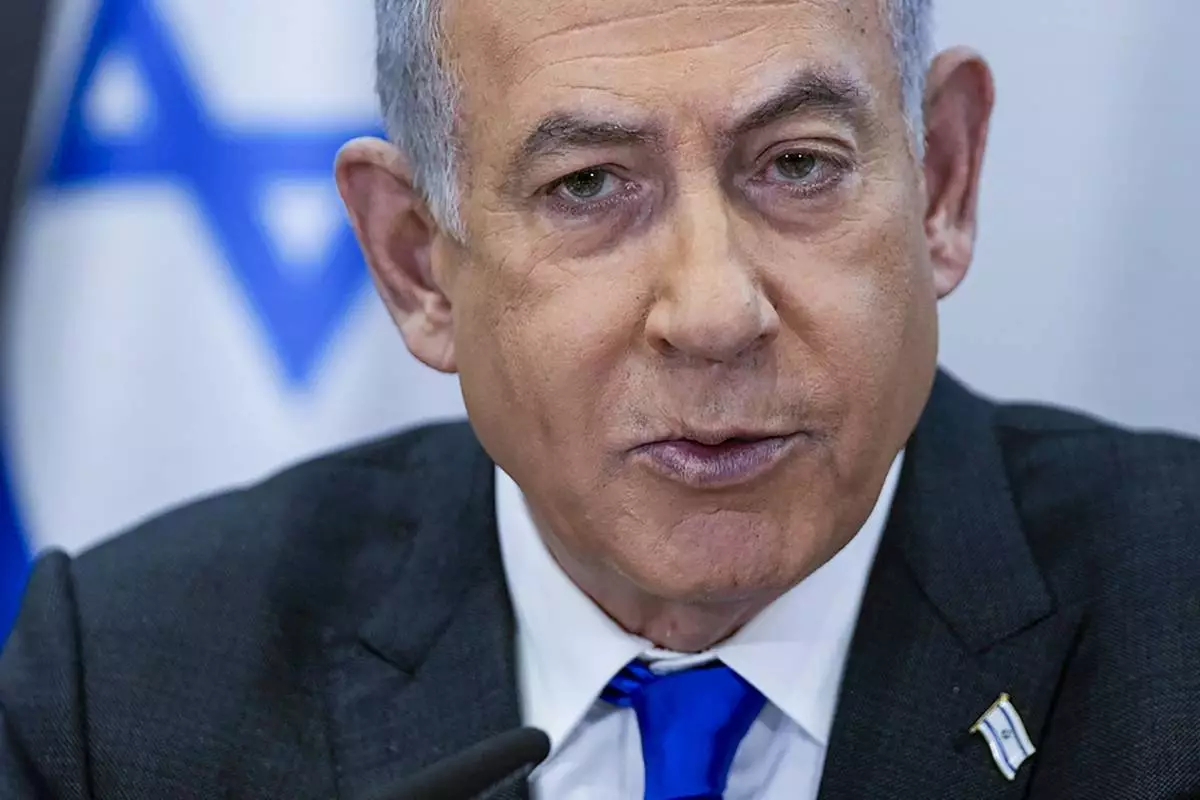
FILE - Israeli Prime Minister Benjamin Netanyahu chairs a cabinet meeting at the Kirya military base, which houses the Israeli Ministry of Defense, in Tel Aviv, Israel, on Dec. 24, 2023. The chief prosecutor of the International Criminal Court said Monday, May 20, 2024 he is seeking arrest warrants for Israeli and Hamas leaders, including Israeli Prime Minister Benjamin Netanyahu, in connection with their actions during the seven-month war between Israel and Hamas. (AP Photo/Ohad Zwigenberg, Pool, File)






